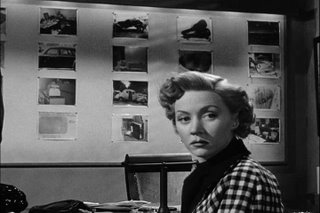With all due respect to the interval, or, courting a science of the image
 In defiance of all pretentions of purpose and/or usefulness...the first G.Frege post:
In defiance of all pretentions of purpose and/or usefulness...the first G.Frege post:Lately I have daydreamed over how to conceive of the specific economy that is embedded in the act of quotation. Could we perhaps call it the sister of appropriation (as Lacan calls truth the sister of jouissance)?
Flaubert, September 1852: "Beauty may become a useless sentiment and art something between algebra and music."
I hope our blog, over time, moves in the direction of the latter. Nevertheless...I felt encouraged to post images:

Agamben, July 1975: "For [Aby] Warburg, the attitude of artists toward images inherited from tradition was conceivable in terms neither of aesthetic choice nor of neutral reception; for him it is a matter of confrontation--which is lethal or vitalizing, depending on the situation--with the tremendous energies stored in images, which in themselves had the potential either to make man regress into sterile subjection or to direct him on his path toward salvation and knowledge."
 Hollis Frampton, September 1971: "A still photograph is simply an isolated frame taken out of the infinite cinema."
Hollis Frampton, September 1971: "A still photograph is simply an isolated frame taken out of the infinite cinema."
Deleuze, March 1970: "There is no apprentice who is not the Egyptologist of something."
Labels: Agamben, Cinema, Deleuze, Flaubert, Frampton, Haneke, philosophy, science of image

4 Comments:
nietzsche, november 1887: ""that is beautiful," kant proclaims, "which gives us disinterested pleasure." disinterested! compare with this definition that other one, framed by a real spectator and artist, stendhal, who speaks of beauty as "a promise of happiness." here we find the very thing which kant stresses exclusively in the esthetic condition rejected and canceled. which is right, kant or stendhal? - when our estheticians tirelessly rehearse, in support of kant's view, that the spell of beauty enables us to view even the nude female statues "disinterestedly" we may be allowed to laugh a little at their expense. the experiences of artists in this delicate matter are rather more "interesting"; certainly pygmalion was not entirely devoid of esthetic feeling."
6:38 PM
this quote from nietzsche reminded me copjec's latest book, "imagine there's no woman." there is a nice article on the relations between beauty, enjoyment and justice. it involves a discussion of kant's moral imperative and its disinterested nature and how they relate to beauty. i think copjec has a different take than nietzsche's on the disinterestedness of the moral/beautiful that kant talks about. her argument is that kant's moral law is disinterested to external goals, but not to itself. in other words, the moral law is committed to nothing but itself, and precisely because of this, is able to constitute a different image of the world, a semblance that incites us to create (the beautiful?). so i think, disinterested in kant does not mean, for copjec, the state of being dispassionate, or unconcerned, to be too detached to be moved, etc. in fact, just the opposite, disinterestedness (to the Other's desires, external demands) is what makes the real passion, the real pleasure to emerge. a different reading of kant.
12:31 PM
extending the quote to a little earlier on the page: "kant had thought he was doing an honor to art when, among the predicates of beauty, he gave prominence to those which flatter the intellect, i.e., impersonality and universality. this is not the place to inquire whether kant did not attack the whole problem in the wrong way; all i wish to point out here is that kant, like all philosophers, instead of viewing the esthetic issue from the side of the artist, envisaged art and beauty solely from the "spectator's" point of view, and so, without himself realizing it, smuggled the "spectator" into the concept of beauty. this would not have mattered too much had the "spectator" been sufficiently familiar to the philosophers of beauty, as a strong personal experience, a wealth of powerful impressions, aspirations, surprises, and transports in the esthetic realm. but i am afraid the opposite has always been the case, and so we have got from these philosophers of beauty definitions which, like kant's famous definition of beauty, are marred by a complete lack of esthetic sensibility." this quote opens agamben's book 'the man without content' which primarily concerns itself with this double life of art; a life lived through the experiences of the artist and a life observed through the eyes of the spectator. it's important to know which side copjec places this disinterestedness, or in fact, whether she argues if art has already left behind the neutral horizon of the aesthetic and recognizes itself in the "golden ball" of the will to power, as agamben puts it. copjec's different reading of kant would make a lot of sense if the artist and the spectator were one and the same. then disinterestedness could be understood as the pleasure to emerge. with this split present, however, it is not that clear to me who is to create, what is to emerge. does she mean that kant actually looked at art and beauty from the viewpoint of its creator?
10:13 PM
So, the first image is from Haneke's The Seventh Continent. Is that correct?
12:11 PM
Post a Comment
<< Home